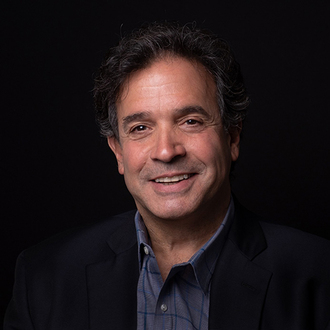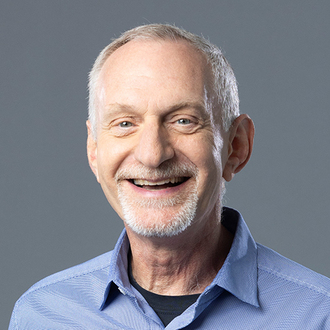
Pixel-Shot - stock.adobe.com
Exploring the Science of Happiness: How to Lead a Happier Life
Speakers at the 2023 WMIF discuss a longitudinal study exploring the science of happiness and examining how to lead a happier life.
How can someone lead a happier life? Robert Waldinger, MD, Director, Harvard Study of Adult Development, Massachusetts General Hospital (MGH); Professor of Psychiatry, Harvard Medical School (HMS) explored this question and the science of happiness during the 2023 World Medical Innovation Forum (WMIF).
The fireside chat emphasized the importance of relationships for well-being and greater levels of happiness. Rudolph Tanzi, MD, Director, Genetics and Aging Research Unit, Co-Director, McCance Center for Brain Health, MGH; Joseph P. and Rose F. Kennedy Professor of Neurology, HMS, moderated the conversation.
Pulling information from the study, previous papers, and Waldinger’s New York Times Bestseller, The Good Life: Lessons from the World’s Longest Scientific Study of Happiness — co-authored by Marc Shulz, Waldinger, and Tanzi — engaged in a lively discussion on research-tested strategies for a happier life.
Waldinger’s book predominantly focuses on lessons and data extrapolated from the Harvard Study of Adult Development, which aimed to understand human development and, ultimately, facilitate a better understanding of happiness.

“The goal was to determine what enables people to be happy and healthier and live a more meaningful life,” prefaced Tanzi. “Especially today, happiness is threatened. We hear so much about loneliness being at epidemic levels, and teen suicide is a terrible thing that’s also rising. A lot of this has to do with the pandemic.”
The current strain on the healthcare system has also prompted additional questions on the science of happiness. With incredibly high rates of physician burnout, focusing on mental health and leading happier lives has become a primary goal for the medical field.
The unique part of this study is its longevity. The study remains active after 85 years, which is nearly unheard of in medical research.
“Longitudinal studies are so difficult to sustain. Most longitudinal psychosocial studies fall apart in the first 10 years. And so, the fact that we're still going at 85 years would be completely astonishing to the people who founded the study,” emphasized Waldinger.
The study began with 724 men and now examines over 2,000 of their offspring. It has seen four directors in its lifespan.
The First Cohort
The first cohort of this study was recruited in 1938, and it used data from two smaller studies: the Grant Study and the Glueck Study. The grant study included 268 19-year-old Harvard Graduates from the 1939–1944 graduating classes. The deans of their colleges deemed these men to be “upstanding,” young individuals.
In a 2023 interview with McKinsey and Company, Waldinger quickly noted that this is by far the “most politically incorrect sample,” consisting entirely of young, white men from Harvard; however, it was the cohort selected at the time.
In addition, the Glueck Study focused on 456 16-year-old boys from inner-city neighborhoods in Boston. This group of participants lived a rougher or more complex life with more financial barriers.
At enrollment, each of these men in both groups was interviewed and had a medical exam. Beyond the participants themselves, researchers went to their homes, interviewed their parents, and examined them at enrollment.
From that point on, they conducted surveys every two years.
“We interview them in their living rooms. We get their medical records from their doctors. We draw their blood; we scan their brains; we talk to their children. We videotape them talking with their wives about their deepest concerns,” said Waldinger in his Ted Talk.
Over time, additional participants were included, allowing for a greater gender balance and a push toward more diversity — or, at least, as diverse as Boston in 1938 can be.
Lessons from the World’s Longest Happiness Study: Social Connection
Tanzi prompted Waldinger to describe the most prominent theme extrapolated from the study and its data to which Waldinger gave a one-word response: relationships.
The study noted that good relationships and fulfilling social connections characterize happy people.
Expanding on his initial answer, Waldinger explained that there were two primary takeaways from the study, which included an analysis of hundreds of papers and books. The first takeaway is relatively self-explanatory: physical health matters. Taking care of physical health through diet, exercise, and preventative maintenance can significantly facilitate happiness and life satisfaction.
“The surprising finding that began to emerge in the late '80s, and it became a very solid finding in multiple studies, was that the quality of our interpersonal connections not only makes us happier, but it keeps us healthier,” said Waldinger. “It predicts longevity; it predicts more disability-free life years.”
“It makes sense that relationships would make you happy, but how could they make it less likely that you would get coronary artery disease or type two diabetes?” he mused. “Then, when multiple studies began to find the same thing, we began to have more and more confidence in this finding.”
The study focused on two generations of patients. When the older generation was in their 80s, researchers asked them to explain their most significant moments of pride and regret.
“Many of these people were quite accomplished. John F. Kennedy, Ben Bradley, longtime editor of the Washington Post, [and] many people who had made a lot of money — everybody to a person talked about their relationships,” said Waldinger. “Nobody talked about awards, achievement, or wealth. Nobody talked about that.”
Instead, participants boasted about being good mentors, spouses, and parents.
Positive Work Relationships
Beyond the importance of social relationships emphasized in happiness research, service, including acts of kindness, provides individuals with a sense of purpose that facilitates positive emotions and improves an individual’s happiness.
Throughout the chat, Waldinger and Tanzi emphasized the importance of relationships in employment, explaining that happiness is attributed to positive relationships across all sectors of life.
Waldinger highlighted the results of a poll by the Gallup organization, which surveyed 15 million workers on whether or not they have a work best friend.
“Only 30% of those 15 million workers had a best friend at work. But when they surveyed their bosses and coworkers, they found that these were the better performers. They earned more, were better with customers, and were less likely to leave their jobs for other positions. And the 70% who did not have a best friend at work, 11 out of 12 reported that they were not very engaged in their jobs. So it turns out that having friendships at work is hugely important, not just for wellbeing, but for the organization’s bottom line,” he added.
People who form positive work relationships often perform better at work as well.
Waldinger brought up a practice by Vivek Murthy, the United States Surgeon General, who implements 5–10-minute social check-ins at his staff meetings.
Murthy was featured on an episode of the Science of Happiness Podcast, hosted by Dacher Keltner, PhD, professor of psychology at the University of California, Berkeley, and sponsored by PRX and UC Berkeley’s Greater Good Science Center, to describe this practice.
The Greater Good Science Center is a multidisciplinary institution that combines psychology, sociology, and neuroscience to establish the science of well-being and happiness. The center offers an online course on the science of happiness.
“The instruction is just to tell the group, the staff, something you'd like them to know about your life. And that is the most enthusiastically received part of any meeting he has. And it spurs all kinds of conversations offline about work-related and personal activities,” explained Waldinger.
External v. Internal Validation
Waldinger maintains that, to some extent, happiness is derived from internal and external validation.
“I don't think any of us are free of concern about what other people think. And that outside validation means a lot, especially for younger people, when forming your identity, whether as a kid, teenager, or young adult professional. People need to hear about how they're seen by other people. So, it matters a lot, but if we have no internal compass and no sense of who we are, independent of whether my stock is up right now or down, that leaves us really vulnerable. It needs to be a combination of using external feedback, but also having some solid sense of who we are.”
While touching on external vs. internal validation, Waldinger and Tanzi explored the role of social media in happiness and validation.
“We're thinking about it as a double-edged sword,” said Waldinger.
Social media has the unique ability to connect people who may not be able to interact face to face, reconnect with old friends, and keep extended family in contact. However, scrolling through the endless curated lives of acquaintances and strangers can lead to feelings of inadequacy, vulnerability, self-doubt, and a fear of missing out (FOMO).

Three Evidence-Base Actions to Start Living a Happier Life
At the close of the discussion, Tanzi prompted Waldinger to offer three main takeaways from the study and decades of experience, providing actionable steps for living a happier life. Waldinger advised all the forum attendees to take the following three steps:
- Be proactive in relationships by reaching out
- Engage in a conversation with a stranger
- Practice gratitude
He explained that the happiest people in the study — those with the best relationships — were those who proactively prioritized their relationships.
“Think of somebody you don't see often enough, miss, or you'd like to connect with, and just text or email them. All you have to do is say, ‘Hi, I was thinking about you and just wanted to connect.’ And if you did that over and over again, you'll be amazed at the good stuff that comes back to you,” advised Waldinger.
Beyond connections with people with whom you have existing relationships, Waldinger recommends engaging in social interaction with strangers. He said a study on commuter trains in Chicago spurred this recommendation.
The Chicago study participants were randomly assigned to two groups. The experimental group was asked to talk to a stranger, while the control group was told to continue their commute as usual, which in most cases meant not being social.
Despite preconceived notions about how much they enjoyed the task, those who talked to strangers were happier.
“They asked them, ’How much do you think you're going to like this task?’ And the people who had to talk to strangers thought they were not going to like it at all,” explained Waldinger, “Afterward, the people who talked to strangers were way happier than the people who kept to themselves. So, talk to a stranger. Maybe it's an Uber driver or somebody who makes you your coffee at the coffee shop.”
Finally, he advised practicing gratitude as much as possible.
“Gratitude practice is really correcting the negativity bias of the human mind. We evolved to anticipate what's wrong out there. Evolutionarily, that's a good thing if you want to pass on your genes and anticipate threats, but it's really bad for happiness.”
Instead of focusing on what is bad, Waldinger asked attendees to focus on what they are grateful for or, more importantly, who they are grateful for. “That practice of gratitude is a surefire way to increase your well-being.”






